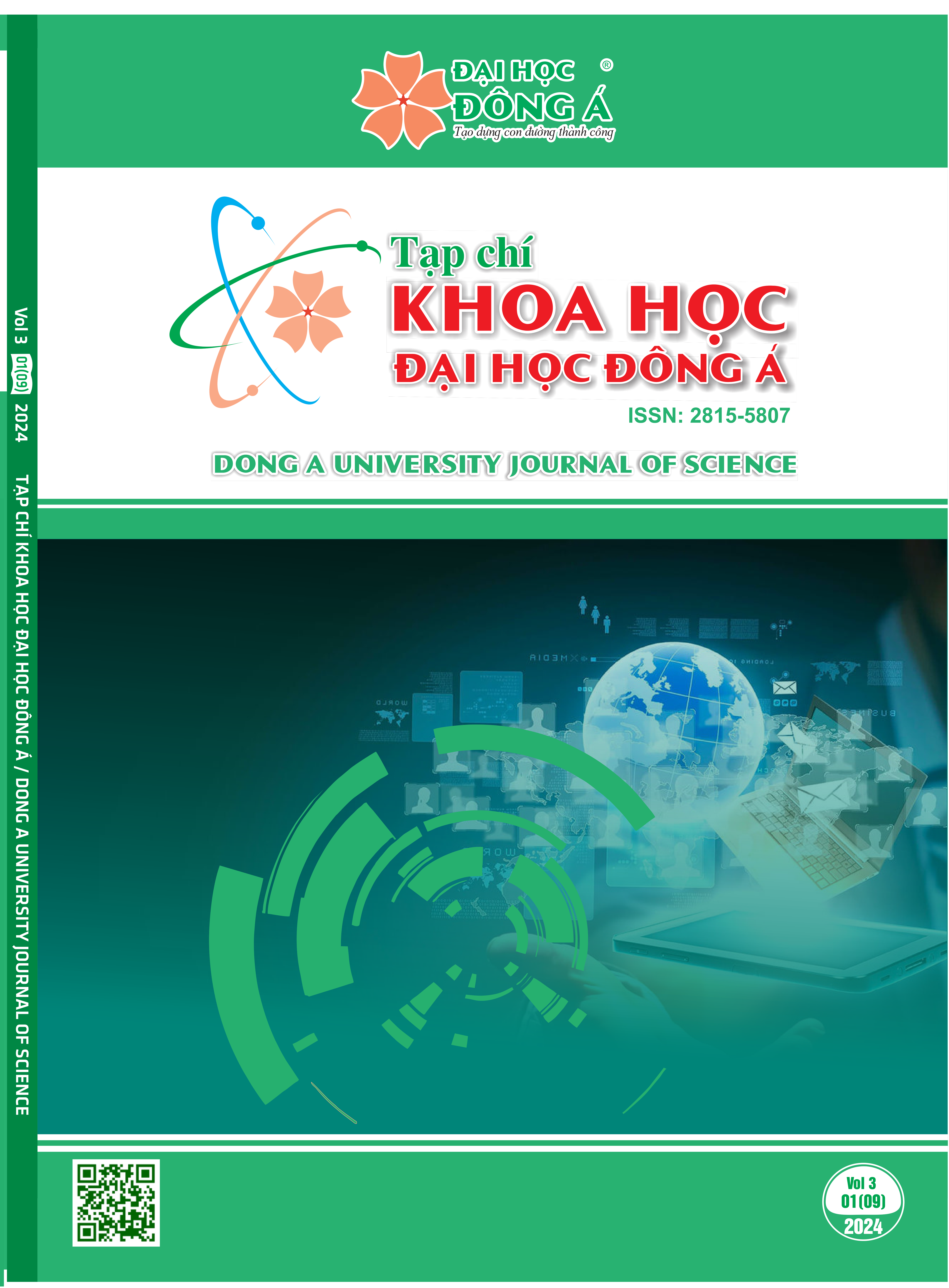Đo lường các yếu tố ảnh hưởng đến chuyển đổi số tại các trường đại học ở Việt Nam
Nội dung chính của bài viết
Tóm tắt
Mục tiêu của nghiên cứu này nhằm đo lường mức độ ảnh hưởng của nhân tố đến hoạt động chuyển đổi số trong các trường đại học tại Việt Nam. Dữ liệu thu thập bằng hình thức trực tuyến với 250 mẫu. Nghiên cứu sử dụng phương pháp định lượng, xử lý bằng phần mềm SPSS 22. Đo lường độ tin cậy của thang đo bằng hệ số Cronbach’s Alpha, phân tích nhân tố khám phá EFA, kiểm định tương quan pearson, phân tích hồi quy đa biến. Kết quả nghiên cứu cho thấy năm yếu tố ảnh hưởng đến chuyển đổi số trong các trường đại học tại Việt Nam bao gồm: hạ tầng kỹ thuật; văn hóa và kỹ năng; nhà quản lý; ứng dụng công nghệ mới; nhân lực chuyển đổi số, ảnh hưởng tới hoạt động chuyển đổi số trong các trường đại học. Từ đó, nghiên cứu đề xuất hàm ý chính sách nhằm thúc đẩy và tối ưu hoạt động chuyển đổi số trong quản lý đào tạo, giáo dục tại các cơ sở đại học ở Việt Nam, góp phần thực hiện nhiệm vụ trọng tâm chuyển đổi số quốc gia của Chính phủ, tầm nhìn đến năm 2045.
Chi tiết bài viết
Từ khóa
chuyển đổi số, công nghệ, phân tích nhân tố khám phá, trường đại học
Tài liệu tham khảo
Alenezi, M. (2021). Deep dive into digital transformation in higher education institutions. Educ. Sci. 11, 770.
Balyer, A., & Öz, Ö. (2018). Academicians’ Views on Digital Transformation in Education. International Online Journal of Education and Teaching, 5(4), 809-830.
Chu Ba Quyet (2021), Research exploring factors affecting successful digital transformation of enterprises in Vietnam, Journal of Banking Science and Training. Vol. 233, 57-70.
Jung, Kwang Surk (2022). An analysis of relations of mental well-being and mental psychopathology of gifted students by an emotional and social developmental process perspective. The 17th Asia-Pacific Conference on Giftedness 2022. 10.13140/RG.2.2.16621.26084/2.
Kaputa V., Loučanová E., Tejerina-Gaite F.A. (2022). Digital Transformation in
Higher Education Institutions as a Driver of Social Oriented Innovations. In: Păunescu, C., Lepik, KL., Spencer, N. (eds) Social Innovation in Higher Education. Innovation, Technology, and Knowledge Management. Springer, Cham.
Maltese, V. (2018). Digital transformation challenges for universities: Ensuring information consistency across digital services. Cataloging & classification quarterly, 56(7), 592-606.
N. Hoang (2021). Digital transformation in higher education: Content, processes and challenges for Vietnamese universities. Proceedings of the international scientific conference on digital transformation in the context of industrial revolution 4.0., 9-20.
Nadkarni, S., & Prügl, R. (2021). Digital transformation: A review, synthesis and opportunities for future research. Management Review Quarterly, 71, 233-341.
Parlak, B. (2017). Dijital çağda eğitim: Olanaklar ve uygulamalar üzerine bir analiz [Education in Digital Age: An analysis on opportunities and practices]. Süleyman Demirel University. Journal of Faculty of Economics and Administrative Sciences, 22(15), 1741-1759.
Reis, J., Amorim, M., Melão, N., & Matos, P. (2018). Digital transformation: a literature review and guidelines for future research. Trends and Advances in Information Systems and Technologies: Volume 1(6), 411-421.
Thegioididong (2010). Đại học số: xu thế của thế giới. thegioididong.com
Tungpantong, C., Nilsook, P., & Wannapiroon, P. (2021, March). A conceptual framework of factors for information systems success to digital transformation in higher education institutions. In 2021 9th International Conference on Information and Education Technology (ICIET), 57-62. IEEE.
Vo Tien Si (2023). Application of discovery factor analysis method in identifying factors affecting digital transformation of Vietnamese enterprises. Proceedings of the National Scientific Conference: Promoting the application of data science to Vietnam’s economic development. Foreign Trade University, Campus 2, Ho Chi Minh City.
Xiao, J. (2019). Digital transformation in higher education: critiquing the five-year development plans (2016-2020) of 75 Chinese universities. Distance Education, 40(4), 515-533.


